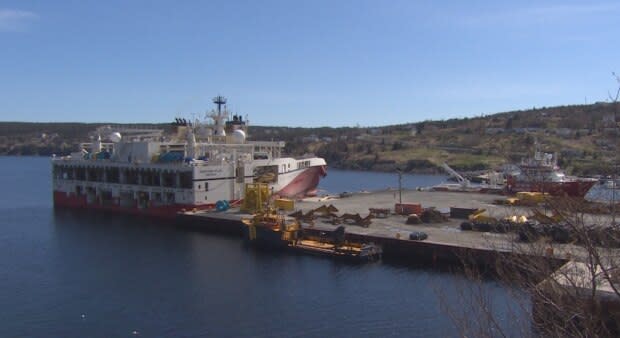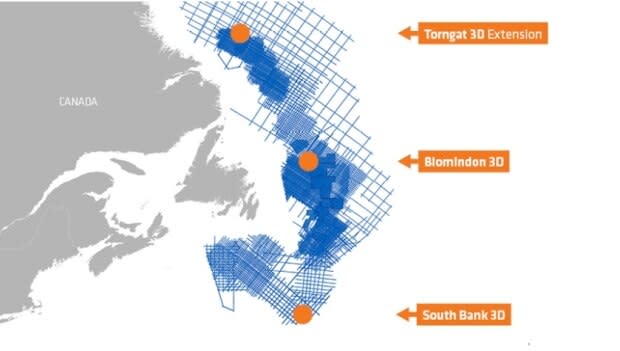Seismic surveying off N.L. cause for concern for fish harvesters, researcher says

Seismic surveying happening in Newfoundland and Labrador this year is leaving researchers and fish harvesters concerned over the health of fish and catch rates in the province's waters.
"Who knows what actually happens in terms of a mechanism, but they're very sound-sensitive animals," Lindy Weilgart, a researcher at Dalhousie University told CBC Radio's The Broadcast Thursday.
"They can suffer anatomical damage if they're close enough. There are cases of internal injuries … those are some the effects that can happen."
Seismic activity in the province is being carried out by Petroleum Geo-Services (PGS), with projects in Labrador, eastern Newfoundland and off of the Grand Banks.
Weilgart said fish can also be harmed in other ways as a result of seismic surveying. She said damage done by seismic surveying could lead to reflexes and immunity systems being compromised for long periods of time, which can make them more susceptible to predators.
"Sometimes these [effects] are four months [after a survey], sometimes even a year, these impacts persist a year after the seismic survey ended," she said.
"It is not a stretch to imagine that if you have an animal for whom vision is pretty much useless and where sound is the perfect sense to use in the ocean, that if you add phenomenally loud sound sources that travel thousands of kilometres potentially, it's pretty logical to assume you're going to have an effect."

PGS has been surveying in the province since 2011, covering about 240,000 kilometres of land using 2-D and 3-D data. The company is working in partnership with Nalcor, looking to license the data to oil companies who might want to explore the areas in the future.
Neil Paddy, manager of new ventures for North and South America for PGS, said the activity can have different effects on different species of fish, but all environmental assessments have been completed.
"In general, the conclusions of those are that the impacts are low-risk," Paddy said.
"In relation to fish for example with swim bladders who will be able to detect a pressure change, a seismic source is a pressure wave. You may potentially expect to have some behavioural effects as the sense that pressure change, they may move away from the area for a period of time and then come back. That would be expressed as an acute behavioural effect rather than some sort of chronic effect."

Paddy said the noise is minimal above the water, sounding like a small buzz. However, the noise would be louder under water, especially if fish were closer to the source.
He said it is difficult to say how long fish will move away for after seismic activity, but studies are being done in the field.
During seismic activity in the water, some fishermen have reported seeing a large drop off in catch. One fisherman on social media reported a loss of 8,000 pounds of turbot over two days after being passed by a seismic surveying vessel.
"That is entirely possible, and this type of effect is the sort of thing that we would like to measure," Paddy said.
"If you can predict how the fish are going to behave, than it's more straightforward to catch it."
Lindy Weilgart said fishermen who are concerned by the seismic activity should bring concerns to government, calling for a more rigorously study on the effects of seismic activity to take place.
"If [fish harvesters] can document the before, during and after landings, and compare that to when the seismic survey happened, that's very useful," she said. "But this all needs to be done for a rigorously scientific study. This needs to be planned years in advance, and you need a good baseline."
"The government should have made this a condition of granting the oil licenses and the seismic survey licenses," she added.
"These are the studies that absolutely have to happen."
Read more from CBC Newfoundland and Labrador

 Yahoo Finance
Yahoo Finance 